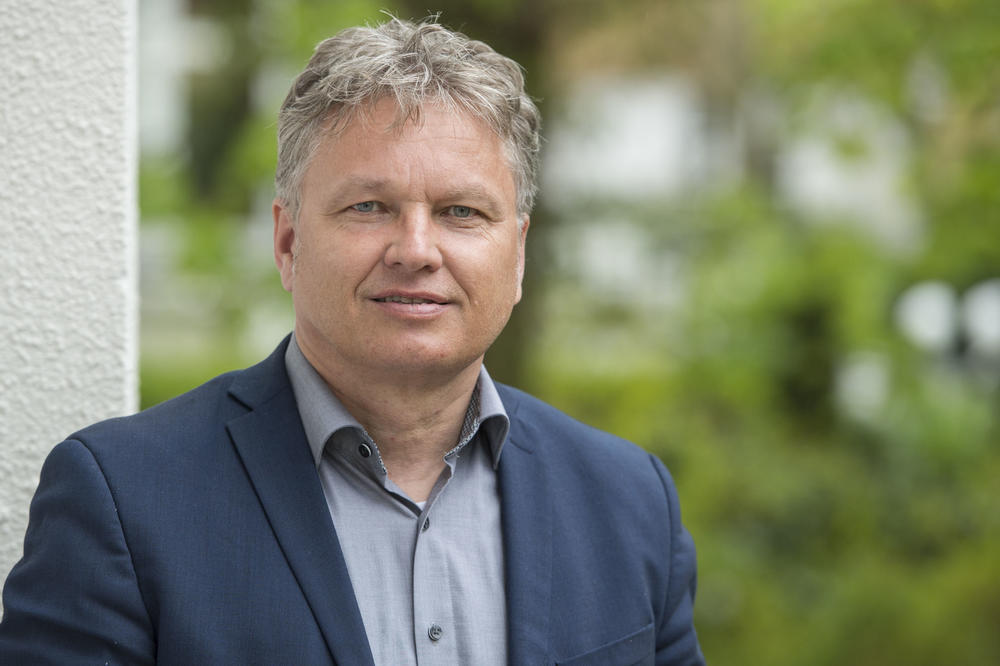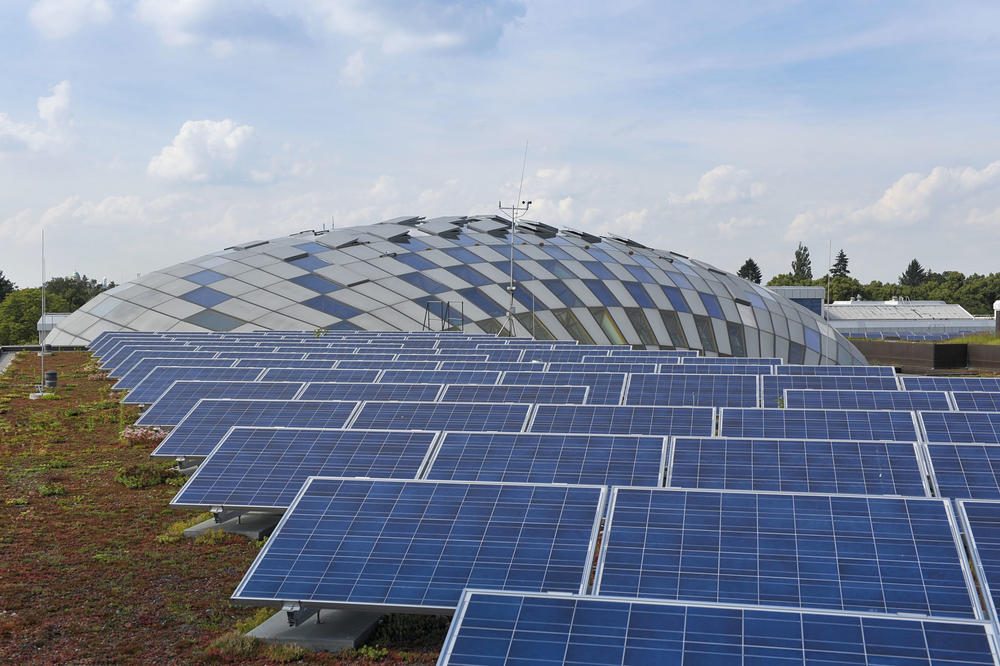“We Need to Remember That We Are Not Helpless”
How Freie Universität is affected by the impending energy crisis and how it is preparing for the winter months
Aug 10, 2022
Over the past twenty years, Freie Universität has managed to reduce its energy consumption by around thirty percent. Andreas Wanke is director of the Unit for Sustainability and Energy Management.
Image Credit: Bernd Wannenmacher
The illuminations for two hundred public buildings and tourist attractions in Berlin will be shut off as part of a new measure to save electricity. Some buildings already went dark on Wednesday. The impending energy crisis and gas shortage are making many people uneasy – including those at Freie Universität. What effect will the situation have on universities? Should students, teaching staff, and employees be worrying about the university’s ability to continue its operations? An interview with Andreas Wanke, director of the Unit for Sustainability & Energy Management at Freie Universität Berlin, about the current challenges and those facing us in the fall.
Mr. Wanke, what is Freie Universität doing to address the rise in energy costs and the impending gas shortage?
The energy crisis is an issue that we take very seriously. Approximately one third of our heating is supplied by natural gas. District heating provides most of the heating supply on our main campus in Dahlem; however, much of this is generated through natural gas.
Energy from above: Nine photovoltaic systems have been installed on roofs across Freie Universität Berlin, allowing the university to generate around 600,000 kWh of clean energy every year.
Image Credit: Bernd Wannenmacher
Fundamentally, it’s a question of how we can contribute toward avoiding the impending energy shortage this winter, while also ensuring that we can function normally as a university. This is part of our social responsibility.
What role has energy conservation played at Freie Universität to date?
In terms of the energy crisis, our many years of hard work mean that we have built up some resilience. After all, we have been able to reduce our energy consumption by around thirty percent over the past twenty years by implementing a wide range of measures. Without these savings, which add up to approximately six million euros per year, the current situation would be much more challenging.
As we have been following the issue for so long, the Executive Board was able to react quickly. They have put together a working group for energy efficiency and security that will meet in August for the first time.
What will the Working Group for Energy Efficiency and Security do exactly?
On the one hand, they have been tasked with developing a communication plan and carrying out building-specific energy checks across campus. The aim is to identify the potential for additional energy-saving measures, as well as to then implement such measures as quickly as possible in cooperation with the relevant university members on site.
On the other hand, we must also prepare ourselves and the university for the possibility that, despite all efforts, we may face serious energy shortages. For this reason, another aim of the working group is to develop scenarios for dealing with such an eventuality. We have already begun carrying out the first on-site analyses and developing scenarios.
How optimistic are you that Freie Universität will be able to further reduce its energy consumption?
When it comes to energy efficiency, we are fortunate in that we aren’t starting from scratch. The fact that we have already made so much progress does, on the one hand, mean that we are somewhat limited in what we are still able to do. But on the other hand, we can build upon our many years of experience. For example, we have learned that these challenges can only be solved together – as a community.
After all, energy efficiency is not just about technology, it also requires action on the organizational and behavioral level. As a university community, we can play our part – something that we have also already demonstrated in the past. We are not helpless. This is something that we would do well to remember in the upcoming months.
Should students, teaching staff, and employees be worrying about having to study, teach, and work in cold rooms this winter semester?
We can’t promise anything. If an energy emergency comes, we will be just as affected as everyone else. We can’t predict what is going to happen in the upcoming months and will simply have to react to the situation as it develops.
However, students and employees can count on the fact that we will do everything in our power to ensure that the university will continue to function as usual – and that means enabling people to study and work in person and in temperature-controlled rooms. After two years of university life taking place online, this is something that we are particularly committed to.
What can we do to help in our day-to-day lives?
Individuals can do a lot. For example, only heating rooms when necessary during the winter months. Even turning radiator valves down to 2.5 or 2 in the evening and before the weekend can be very effective. We can achieve energy savings of five to six percent for every degree that we don’t heat a room.
If you are the last person to leave a seminar room at the end of the day, turn down the temperature on the radiator and switch off the lights – this should go without saying. This applies to teaching staff and students alike. The more people who take this information on board and develop an interest in reducing unnecessary energy consumption, the more energy we will save as a community. Step by step, we will then also learn how to deal with the situation together.
Kerrin Zielke conducted the interview.
This article originally appeared in German on July 29, 2022, in campus.leben, the online magazine of Freie Universität Berlin.
Further Information
Do your part! Here are some practical energy-saving tips that you can use in your day-to-day life [in German].


